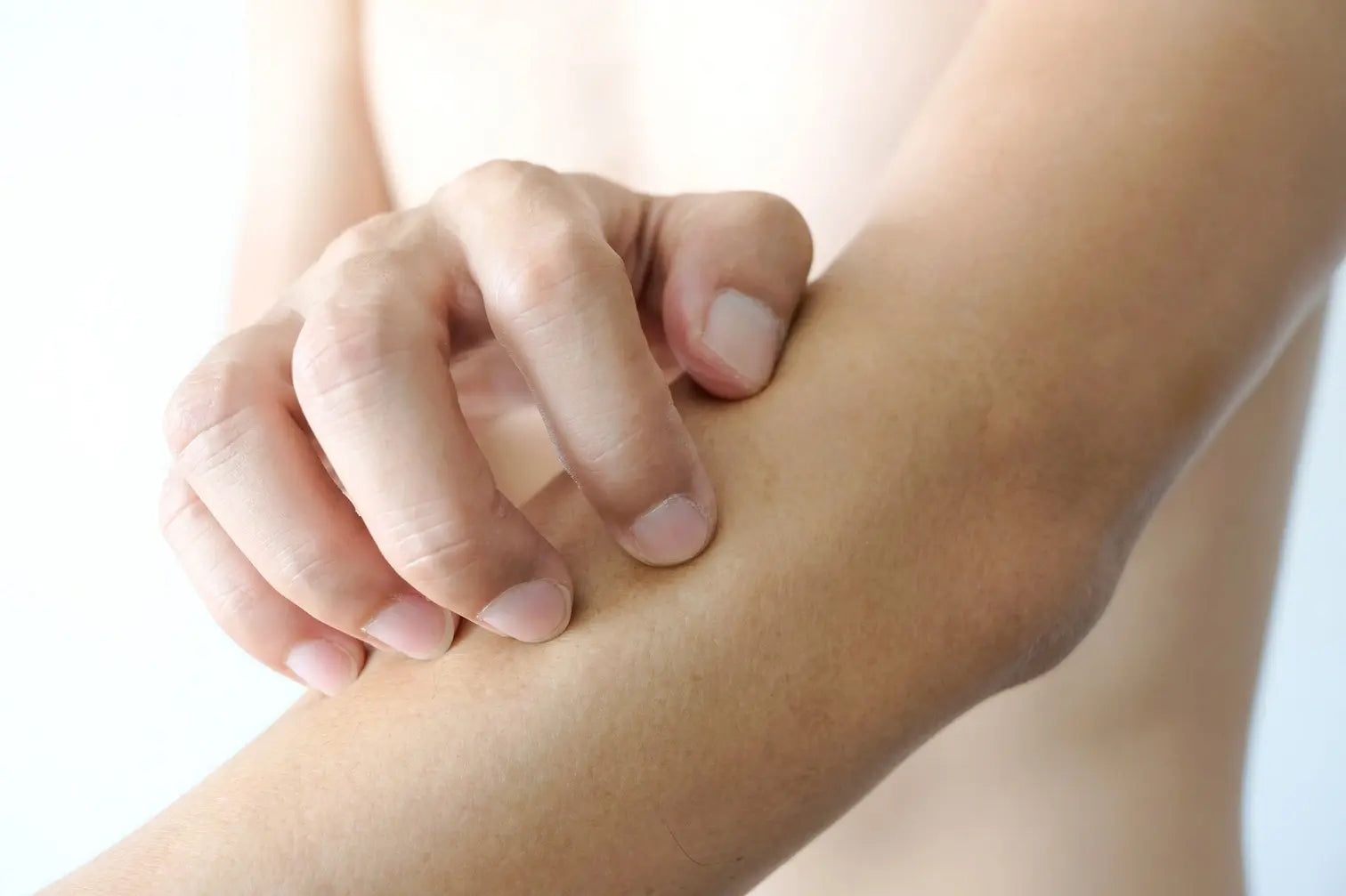What Causes Itchy Skin?
Common Causes of Itchy Skin
Dry skin is one of the most common causes of skin itching. When your skin's moisture levels drop, it's like stripping away its natural shield, leaving it exposed to all sorts of environmental triggers that can set off an itching frenzy. This can result in feelings of tightness, discomfort, and irritation, prompting you to scratch and further exacerbating the problem.1 Therefore, ensuring proper hydration is crucial not only for relieving itching but also for maintaining overall skin health and resilience.
When to See a Doctor for Itching Skin
Prevention Tips for Itchy Skin
It may feel satisfying in the moment, but scratching that itch is like adding fuel to the fire. Persistent scratching can damage the skin's protective barrier, leading to increased vulnerability to infections and other skin problems.4 Instead of risking damage to your skin by scratching, try soothing techniques like gentle patting or applying a cool compress to calm the itch without any of the fallout.
Stress isn't just a mental burden – stress can affect your skin too. When you're stressed, your body releases hormones like cortisol, which can trigger inflammation and make itching worse. That's why it's crucial to find ways to manage stress effectively. Whether it's through mindfulness practices like deep breathing or meditation, regular exercise, or simply spending time doing activities you enjoy, taking proactive steps to reduce stress can make a world of difference for your skin. So, prioritize self-care and stress management techniques to keep your skin calm, happy, and itch-free.
- Dry skin is a prevalent cause of itchy skin, as decreased moisture levels leave the skin vulnerable to environmental triggers. Prioritize regular hydration!
- Allergies can provoke itching through allergic reactions triggered by the immune system's response to perceived threats, and skin irritants such as harsh chemicals and fragrances can exacerbate itching and skin irritation upon contact.
- Dermatitis, including contact dermatitis, atopic dermatitis, eczema, and psoriasis, are inflammatory skin conditions that often cause itching and require professional diagnosis and treatment.
- To prevent itchy skin, avoid harsh chemicals and fragrances that can disrupt your skin's balance.
- Refrain from scratching to prevent damage to the skin's protective barrier, and manage stress effectively through mindfulness practices and self-care to maintain calm, itch-free skin.
- When itching becomes severe enough to hinder daily activities and won’t go away with at-home treatments, see a dermatologist.




